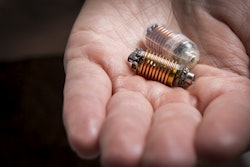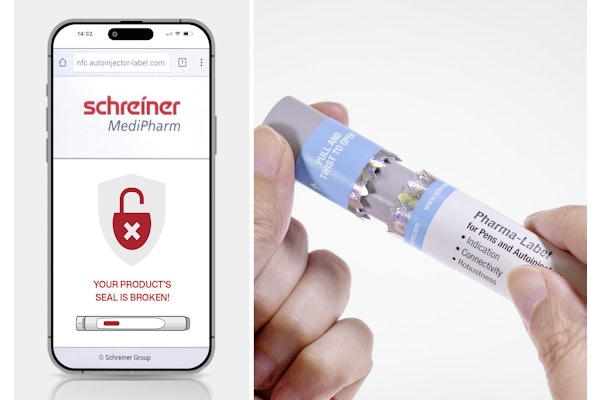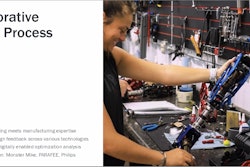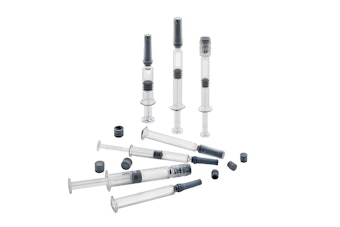This content was written and submitted by the supplier. It has only been modified to comply with this publication’s space and style.
The use of polymers in medical devices has been growing steadily over the last years, replacing glass, metal and other conventional materials. However, when it comes to the right choice of polymer, some pains and pitfalls have to be taken into consideration. This was the topic of a presentation held by VELOX GmbH at the “CLARIANT Healthcare Solutions Color Design & Packaging Day” in Cambridge at the end of November.
“The development of medical and pharmaceutical devices takes time and money and is strictly regulated”, says Anja Flossbach, Mechanical Engineer and Business Development Manager, Medical Plastics, at VELOX. “Therefore, the right choice of material is crucial for developers to succeed when it comes to compliance regulations, certification processes and, most importantly, providing a high-quality product.”
There are at least five criteria that have to be evaluated thoroughly when selecting materials for specific medical or pharmaceutical applications. “On the one hand, of course, one has to consider the manufacturer’s design and application specifications”, continues Flossbach. “On the other hand, the material properties are key aspects to be scrutinised with regard to these specifications. And last but not least, pricing as well as regulatory and handling aspects are critical for the products’ successful realisation and market entry.”
Preventing colour change, melting and breakage
Housings for diagnostic and monitoring equipment for hospitals, for instance, often have to withstand highly aggressive and concentrated cleaning agents. This can cause stress cracking in the plastics. If they actually break, fluids can penetrate into the medical device, damaging
the often expensive electronics. Hence, it is crucial to use the right material. “Upon examining
the application specifications, we might introduce a PC/PET for hospital equipment, whereas PC/ABS or ABS could be considered for homecare devices, where less aggressive cleaning agents are typically used”, explains Flossbach.
Similarly, different polymers react differently when it comes to the sterilisation of medical devices. To avoid colour change or loss of mechanical properties in processes like steam sterilisation, materials have to be particularly resistant, notably to high temperatures.
The right TPU for medical implants
Another example are implantable materials. Many medical-grade polymer suppliers do not allow the implantation of their materials into the body or restrict it to particular time limits, typically 24 hours or 30 days. Nevertheless, there are material options for long-term implant applications (USP 2a and higher). “With the TPU from our partner Lubrizol, our customers are free to perform tests for any device remaining inside the body for unlimited times”, says VELOX’ medical plastics expert.
Medical compounds: what’s in them?
Regulatory approval of customised compounds is another issue that can be difficult to handle if the device manufacturer does not have full transparency on the compound. To ease these processes for our customers, VELOX’ partner IPC, who develops tailored compounds for medical applications, discloses compound formulae on the certificate of analysis.
VELOX’ recipe: cooperation from an early design stage
“To really add value for our customers and help them choose the right material for their specific application, we at VELOX focus on technical assistance and engineering support by working with our customers from a very early design stage”, highlights Flossbach. Over the last 25 years, VELOX’ medical plastics team has built up profound know-how and in-house expertise of specific materials, finishings, applications and market developments to meet the growing demand for comprehensive support. The company also provides regulatory support, documentation and comprehensive after-sales support, boasting partners such as Trinseo, IPC, Arkema, Lubrizol and Topas.
VELOX’ medical plastics experts will be at Pharmapack (Hall 7.1, Booth D64), taking place from 7 to 8 February 2018 in Paris.





















